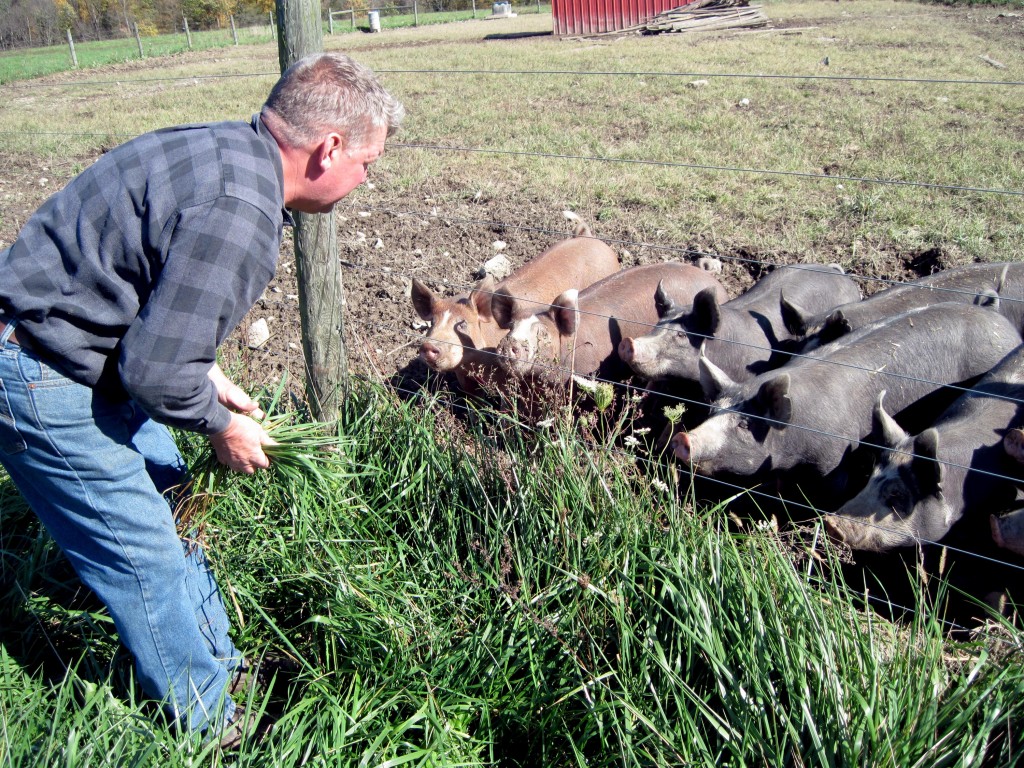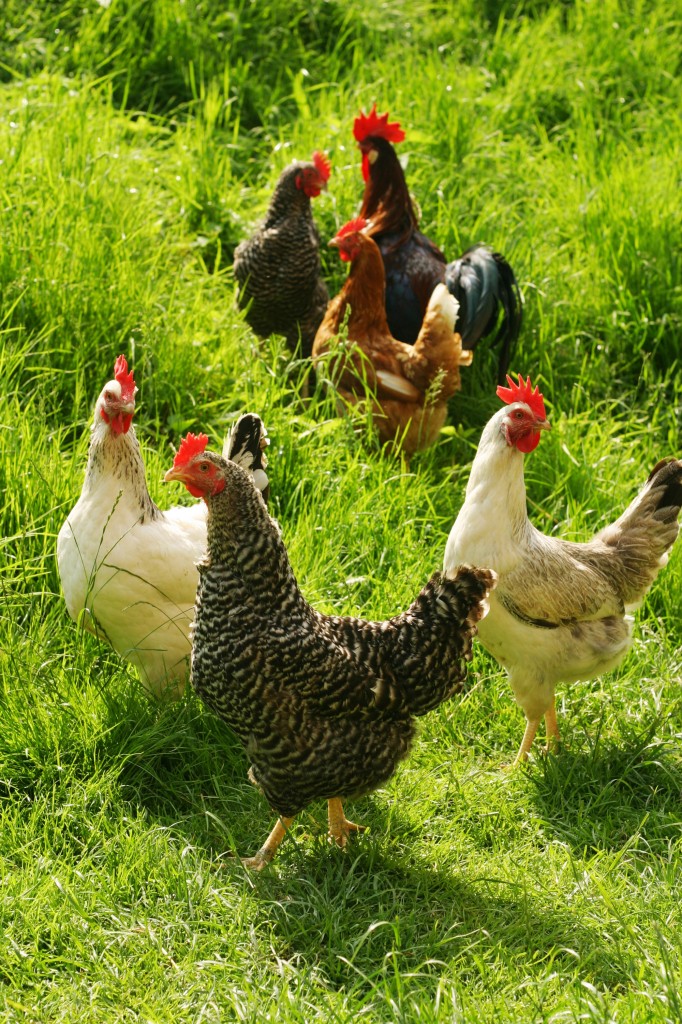
“Bon Appétit Management Company has been leading the way on animal welfare issues within the food industry since its inception. Whether it’s sourcing from higher welfare suppliers, endorsing legislation tackling animal cruelty, or offering more plant-based meals, the company sets a very high bar for social responsibility.”
—Josh Balk, senior director of food policy for the Humane Society of the United States
At Bon Appétit we believe that we can change the food system to reduce animal suffering. Our purchasing philosophy when it comes to animal products is three-tiered: We believe in supporting small farms, rewarding responsible mid-size ones, and using our market power to influence the big producers to improve their practices.
WHAT BON APPÉTIT IS DOING

We have led our industry in our early and detailed commitments to sourcing more humanely raised meat, poultry, and eggs:
- Our contracted pork is gestation-crate free with sows living in group housing. We were the first food service company to implement this strict protocol. In addition, our supplier limits its use of farrowing crates to the period before piglets are weaned, and is actively testing more humane farrowing practices and environments. Since 2016, our pork has come from animals never given non-therapeutic antibiotics or growth promoters.
- Our ground beef is humanely raised (since 2012)*.
- No foie gras or crate-raised veal (since 2012).
- Eggs are certified cage-free (shell eggs since 2005, and precracked/liquid eggs on track for mid-2016).
- Turkey and chicken are raised without routine antibiotics (since 2003).
- Milk and yogurt come from cows not treated with rBGH (since 2003).
- Vegetarian/vegan options offered every meal day (always).
We are also asking our suppliers to make the following changes by 2026, or sooner if there are breakthroughs on resolving these issues:
- Cease or begin phasing out the cruel practice of tail docking of dairy cows immediately
- Cease dehorning without pain management for dairy and beef cattle by 2026, or sooner if there are breakthroughs on resolving these issues (such as using polled genetics so that cattle are born without horns).
- Evaluate more humane farrowing (birth and post-natal) practices for breeding sows
- Evaluate options for more enriched environments and for phasing out tail docking and castration procedures performed without pain management for all hogs.
- We have signed onto the Better Chicken Commitment (BCC) and are working to transform the welfare of the broiler chickens within our supply chain. In 2024, we will move to a supplier that offers broiler chickens enrichments including hay bales, perches, and natural light; ensures minimum space requirements (at least a square foot per 6 lbs); and utilizes Controlled Atmosphere Stunning to render them unconscious prior to shackling. (Performance will be benchmarked annually and publicly reported.) In the following years, we will also transition to the use of approved genetics for slower-growing breeds.
We also continue to work on ensuring that 25% or more of our total meat, poultry, and egg purchases come from producers whose practices have been certified by the independent animal-welfare monitors Humane Farm Animal Care (HFAC), Food Alliance, Animal Welfare Approved, or Global Animal Partnership.
Being a pioneer hasn’t been easy – watch our Chief Strategy & Brand Officer’s TEDxManhattan talk on YouTube about the challenges of meeting our gestation crate target.
The meat, egg, and dairy industries are by nature slow moving, whether for ending abuses that could be eliminated in the near term, or for infrastructure changes that require time and capital to overhaul their physical facilities as well as to breed animals that can tolerate and thrive in the new environments (such as group housing for sows). By listing which current standard practices we would like to see phased out, we hope to send a clear message: We expect the industry to keep moving toward more humane treatment of farm animals in this country.
*Temporary Change in Certified Humane Ground Beef Supply Availability
In July 2024, Bon Appétit Management Company’s purchasing team learned that our primary supplier of Humane Farm Animal Care (HFAC)-certified beef — which is used to make the ground beef carrying the Certified Humane™ label that our teams purchase nationwide — has chosen to permanently stop carrying the certification. We value third-party verification, which is why we are actively seeking new suppliers that have been certified by one of our accepted certifying programs — HFAC, Animal Welfare Approved, Food Alliance, or Global Animal Partnership.
As we seek new suppliers that carry an acceptable certification, we will continue to source ground beef from our current supplier to ensure its consistent availability for our guests and clients. While our current ground beef will no longer carry the HFAC certification, it is our understanding that the animal welfare standards for the product will not change in the near future. While estimating the precise date when a new supply will be available nationwide is impossible, we expect this change to be temporary and hope to have a new supply available in most locations by early 2025.
Learn more
- Humane Society of the United States
- Animal Welfare Approved
- Humane Farm Animal Care
- Global Animal Partnership
- Food Alliance
- World Society for the Protection of Animals
- The Meatrix (fun animated video series)
- Food & Water Watch’s Factory Farm Map
- CAFO: The Tragedy of Industrial Animal Factories, by Dan Imhoff